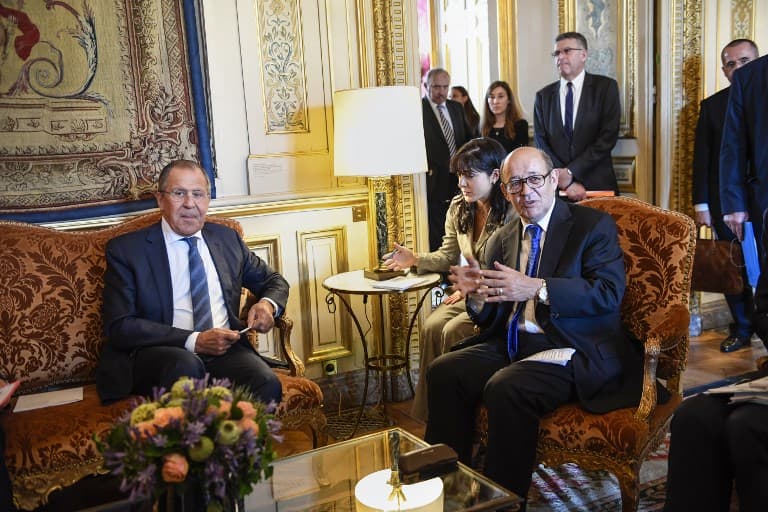France and Russia vow to put aside differences and fight extremism

The French and Russian foreign ministers vowed Thursday to put aside their countries' differences to fight and defeat
extremism.
"International terrorism is our number one enemy and combatting it means really putting to side all the rest," Russia's Sergei Lavrov after meeting French counterpart Jean-Yves Le Drian in Paris.
France is part of an international coalition battling jihadists in Iraq and Syria and Russia intervened in 2015 in the Syrian conflict on the side of Damascus.
Both have been hit by several attacks claimed by the Islamic State group in recent years and Le Drian said Paris and Moscow were facing "a common enemy" in Syria.
He said Moscow and Paris "share a common objective, peace, and it is a question of national security both for France and for Russia."
Russia has come under increasing diplomatic pressure from Western nations to distance itself from the regime of Syrian President Bashar al-Assad after the UN's chemical weapons watchdog said Damascus used sarin in an April attack on a rebel-held town.
Moscow dismissed last month's report by the Organisation for the Prohibition of Chemical Weapons, saying its findings were based on "questionable data".
Le Drian admitted that France and Russia disagreed over the April 4 attack on Khan Sheikhun, but said they were "both very strongly opposed" to the use of chemical weapons.
Comments
See Also
"International terrorism is our number one enemy and combatting it means really putting to side all the rest," Russia's Sergei Lavrov after meeting French counterpart Jean-Yves Le Drian in Paris.
France is part of an international coalition battling jihadists in Iraq and Syria and Russia intervened in 2015 in the Syrian conflict on the side of Damascus.
Both have been hit by several attacks claimed by the Islamic State group in recent years and Le Drian said Paris and Moscow were facing "a common enemy" in Syria.
He said Moscow and Paris "share a common objective, peace, and it is a question of national security both for France and for Russia."
Russia has come under increasing diplomatic pressure from Western nations to distance itself from the regime of Syrian President Bashar al-Assad after the UN's chemical weapons watchdog said Damascus used sarin in an April attack on a rebel-held town.
Moscow dismissed last month's report by the Organisation for the Prohibition of Chemical Weapons, saying its findings were based on "questionable data".
Le Drian admitted that France and Russia disagreed over the April 4 attack on Khan Sheikhun, but said they were "both very strongly opposed" to the use of chemical weapons.
Join the conversation in our comments section below. Share your own views and experience and if you have a question or suggestion for our journalists then email us at [email protected].
Please keep comments civil, constructive and on topic – and make sure to read our terms of use before getting involved.
Please log in here to leave a comment.